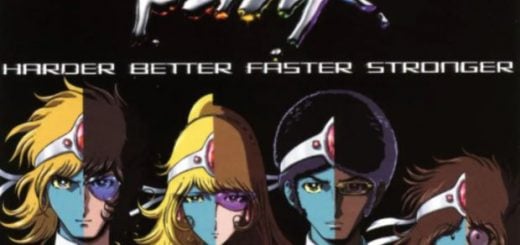Giorgio by Moroder by Daft Punk Lyrics Meaning – Synthesizing the Past and Future of Music
Lyrics
When I started really to play guitar
I definitely wanted to become a musician
It was almost impossible because, it was
The dream was so big
That I didn’t see any chance
Because I was living in a little town, was studying
And when I finally broke away from school
And became a musician
I thought “well, now I may have a little bit of a chance”
Because all I really wanted to do is music
And not only play music, but compose music
At that time, in Germany, in ’69, ’70
They had already discotheques
So I would take my car, would go to a discotheque
Sing maybe thirty minutes
I think I had about seven, eight songs
I would partially sleep in the car
Because I didn’t want to drive home
And that helped me for about
Almost two years to survive
In the beginning
I wanted to do an album with the sounds of the fifties
The sounds of the sixties, of the seventies
And then have a sound of the future
And I thought “Wait a second
I know the synthesizer, why don’t I use the synthesizer
Which is the sound of the future”
And I didn’t have any idea what to do but I knew I needed a click
So we put a click on the 24-track
Which then was synced to the Moog modular
I knew that could be a sound of the future
But I didn’t realize how much the impact would be
My name is Giovanni Giorgio, but everybody calls me Giorgio
Once you free your mind about a concept of
Harmony and of music being correct
You can do whatever you want
So nobody told me what to do
And there was no preconception of what to do
In 2013, the French electronic duo Daft Punk released their Grammy-winning album ‘Random Access Memories’, and one track that stands out in its musical and storytelling depth is ‘Giorgio by Moroder’. Narrated by the legendary music producer Giorgio Moroder himself, the song is a meta-musical journey that merges autobiography with a broader commentary on creative innovation.
This multifaceted epic stitches together personal history, technological evolution, and philosophical insight about the nature of music. But to find the heart within the machine-coded bars, one must listen intently to Moroder’s spoken-word monologue and the accompanying sonic landscape sculpted by Daft Punk.
The Genesis of a Musical Visionary
The track begins with Moroder recounting his humble beginnings, illustrating the dawn of a dream against pragmatic odds. It’s not just about the aim to become a musician; it’s the portrayal of a desire so intense that it eclipses the improbability of success. This dichotomy encapsulates the human essence of aspiration amidst the uncertainty of a provincial life catapulting towards the stardom of discotheques.
Moroder’s candid recollections offer a window into the psyche of an artist on the verge of innovation, breaching the conversation beyond mere biography into the realm of inspiration and determination. It’s reflective of Daft Punk’s own journey, paralleling their career’s evolution and their perpetual push to redefine the boundaries of electronic music.
A Sonic Time Machine: The Fusion of Decades
One of the most compelling aspects of the track is its architect’s intention to create a palimpsest of the musical eras preceding the eighties. Moroder’s ambition to encapsulate the essence of the fifties, sixties, seventies, and then leap into the ‘sound of the future’ epitomizes the progressive spirit embraced by Daft Punk.
The musical transitions in ‘Giorgio by Moroder’ symbolize the fluidity of time and style, underscoring the universality of music, while the layering of temporal textures serves as a homage to influences that paved the way for the future of music—an evident celebration of musical evolution.
Harnessing the ‘Sound of the Future’
When Moroder speaks of his revelation to use the synthesizer—’the sound of the future’—he inadvertently narrates the birth of a musical revolution. The song manifests this moment through its progressive use of electronic elements, showcasing how the Moog modular synth became synonymous with innovation in electronic music.
The ‘click’ Moroder needed sets the stage for an audacious synthesis of organic and electronic sounds—a blend Daft Punk has mastered over the years. It embodies the metamorphosis of music, reflecting not just a change in technique but a transformation in the perception of what music could become.
Breaking Rules, Setting Free: Unleash Your Mind
Moroder’s emancipating statement about disregarding musical correctness resonates as a bold manifesto of creative freedom. It becomes an ethos in itself when he asserts that once theoretical constraints are stripped away, the possibilities in music-making are limitless.
This belief in the absence of limitations serves as a powerful message that echoes through Daft Punk’s discography, and it’s one that has long been embraced by the most pioneering figures across the artistic spectrum. It champions innovation, diversity, and the creative spirit that fuels progress in the arts.
Giorgio-ism: The Prolific Line that Defines an Era
Arguably the most memorable line from the track, ‘My name is Giovanni Giorgio, but everybody calls me Giorgio’, stands more than just an introduction. It threads Moroder’s personal identity into the broader narrative of his music—a name that has become iconic, emblematic of an entire musical language and period.
This simple, yet profound, introduction encapsulates both the man and the myth; the human behind the legend and the persona that speaks volumes. It’s a recognition of both self and the quasi-mythical character he’s become, mirroring how an artist transcends their own life story to become woven into the fabric of cultural history.








